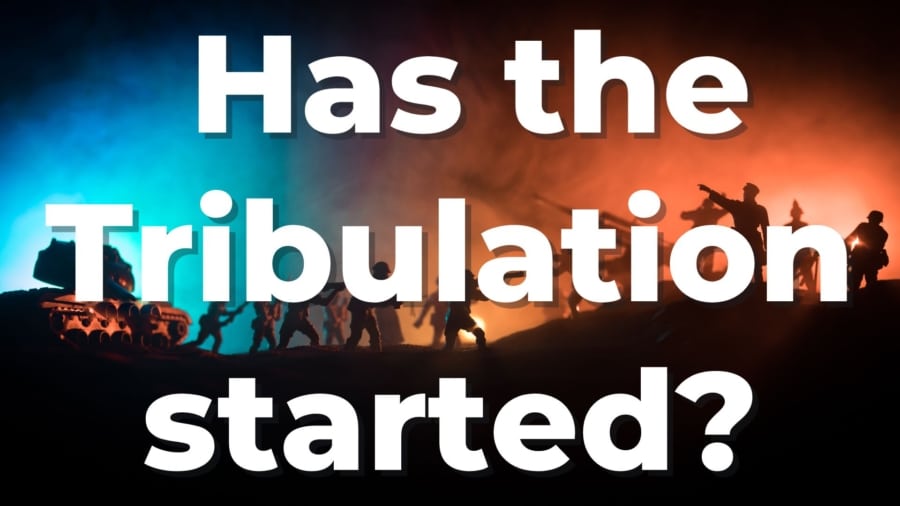You might not believe it, but Luke Chapter One is one of the most theologically, doctrinally, and prophetically packed passages anywhere in Scripture. To thoroughly exegete it would involve going from book to book, passage to passage, and cross-referencing. This video covers just Luke 1:26-30, where the Virgin Mary meets Gabriel. Subsequent videos will cover more of Mary’s response to Gabriel’s news, that she was selected to bear the Messiah, Jesus Christ. There is detail here that should edify and challenge us in our faith.
First, the name Gabriel, means “Hero of God. It’s very interesting that in Luke 1:19, Gabriel says of himself that he stands in the presence of God. This leads a lot of students and scholars to believe Gabriel may be one of the four angels that surround the throne in Revelation Chapter four. But one thing we do know, whether we’re looking at Gabriel, whether we’re looking at Michael, all the angels reflect God. Their job, their task, their purpose for existence is to reflect God in different ways. Michael is a warrior angel. Gabriel is a teaching and an encourager and exhorter. Note that whenever Gabriel appears, he appears as a man. And when Gabriel appears, the only thing he delivers is information about the coming of the Messiah. We only have three people in the Bible to which Gabriel appears. There may have been more, but he’s not named otherwise. He appears to Daniel in Daniel, Chapters 8 to 12 where Daniel stands there listening, and Gabriel is basically teaching and explaining (and in some cases giving visions) of the Messiah. And then, of course, he appears to Zacharias in Luke 1:11-20, where he revealed the miraculous birth of John the Baptist. Why is that important? Because John the Baptist is the forerunner of the Messiah. And then of course, shortly afterward, Gabriel appeared to Mary, who would be the virgin mother of the Lord Jesus Christ.
And so Luke 1:26 says “that Gabriel was sent by God to a city of Galilee named Nazareth.” That’s very important. This is the town in which Mary lived. It’s significant because it fulfills a prophecy that you might have pondered or maybe wrestled over. You’ll remember in Matthew 2:23, when Jesus’ family comes back from Egypt, it says that Joseph led them to Nazareth. “He came and dwelt in a city called Nazareth, that it might be fulfilled which was spoken by the prophets, “He shall be called the Nazarene.” There are no real passages that say, “he shall be called a Nazarene.” You’ll search in vain. You can’t find it. And yet Matthew said that this was a fulfillment of the “prophets,” plural. You’ll probably remember that there are several passages in the Old Testament that refer to the Messiah as “the branch” (Isaiah 4:2, Isaiah 11:1, Jeremiah 23:5, Jeremiah 33:15, Zachariah 3:8, and Zachariah 6:12.) The word branch in Hebrew is “Netzar,” is the root of Nazareth. Is it amazing? God named a town just so a prophecy could be fulfilled concerning the Lord Jesus Christ
Our passage in Luke goes on to tell us that “Mary was betrothed to Joseph of the House of David.” This is going to become significant, but I’m going to save that for the next video. Suffice that it is the fulfillment of a prophecy. “Mary” is derived from the Hebrew name “Miriam,” which goes all the way back to the sister of Moses. It’s very interesting that Miriam is probably derived from the Egyptian “Meri,” which means “beloved.” Isn’t that appropriate? In Luke 1:28, Gabriel identifies the character of Mary using three phrases. These should be a challenge to us. First though, many scholars have suggested that probably every generation of young women in Israel dreamed that possibly, maybe they would be the one who bears the long-awaited Messiah. Well, here of course, it came down to Mary. And I think Gabriel explains something about why she was chosen. He says that she was highly favored. Now favor, of course, refers to Grace. And we’ll see that in a moment. She was highly favored or highly great, highly blessed. This shows me that she was living in intimate association with the grace of God. Her life was enveloped in grace. How does that happen? This fellowship and Grace are available to every one of us. The Apostle Paul amplifies this when he says in Romans Chapter 5, “grace upon grace” and “much more grace.” Much more than what? Much more than anything you’ve known up to this point. There’s more grace available. How do we get it? Well, it’s very simple. In 1st Peter 5:5, Peter said, “God resists the proud, but He gives grace to the humble. Also, Jesus began his public teaching ministry with the Beatitudes, and he began with the statement “Blessed,” or you could say “Grace.” “Blessed are the poor in spirit.” The word for “poor” here in the Greek language conveys a person is so poor, so destitute, so helpless that when people walked by, they would just spit on them. They were what you would call the dregs of the earth. God gives grace to we who realize how poor we really are in comparison to our God
Luke 1:28 continues, “The Lord is with you.” This indicates that Mary was living by faith. You must realize that Mary is likely just 14 or 15 years old, the typical marriage age in her time. How spiritually deep could she be? Let’s not deify Mary, which is idolatry, but let’s give her a rightful place, because she was a very magnificent young woman. She was living in fellowship with God, living in the sphere of grace. Gabriel said, “blessed are you among women,” indicating that she represented the ideal woman. Notice he did not say “above other women,” but, “among women.” Mary represented one half of humans. Immediately our mind goes to Genesis 3:15 where the first promise of the Messiah that tells us essential that “the seed of the woman would crush the head of the serpent.”
Now in Luke 1:29, Mary responds within herself in two ways. She was “troubled,” and she “considered.” First, the word “troubled” is actually an intensified verb, which literally means “terrified.” You know, there’s an interesting reaction that you will find in everyone in the Bible when the invisible, unseen realm intersects with the human realm. They’re terrified. If you want to see a vision of angels or the Lord, prepare yourself to be terrified, because the spiritual realm is something that we’re not qualified or capable of taking in. Second, I love this word “consider” which in the Greek is the word “logizomai.” It’s a mathematical term. What a magnificent young woman! What kind of facts do you think she’s adding up here? She’s had an appearance of an angel that calls himself Gabriel who tells her that she is highly favored and she’s standing there dumbfounded, terrified, and she’s in her mind casting about with what? Scripture! She’s beginning to add up the facts she knows of scripture. Being a young Jewish woman, you know, there wasn’t a lot of training. A young man, on the other hand, was trained in the law. Before a young man’s bar mitzvah, he got some intensive training, but not so much a young woman. Something interesting, however, is revealed in the Song of Mary (Luke 1:46-55). There are 15 direct references and allusions to Old Testament scriptures. Off the top of her head, she begins to sing a song composed of fifteen Old Testament texts. Anybody here want to try that? We might get John 3:16 and a couple of others. Mary was obviously a scholar of scripture, and likely, because she was not pushed into knowing the law like a boy would be, she was probably searching on her own.
To me this means she loved the word of God!







